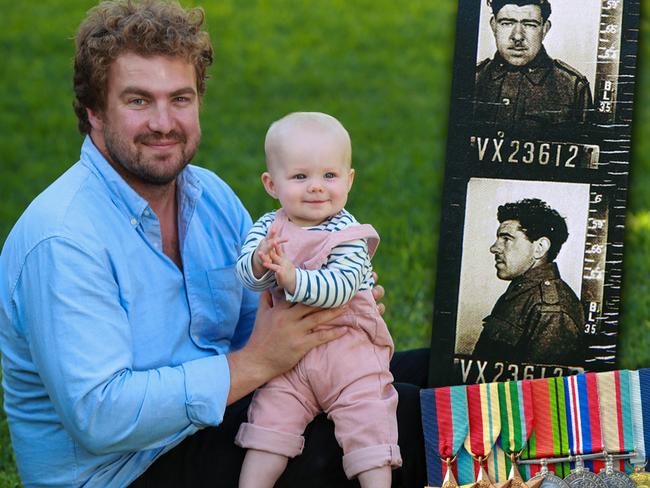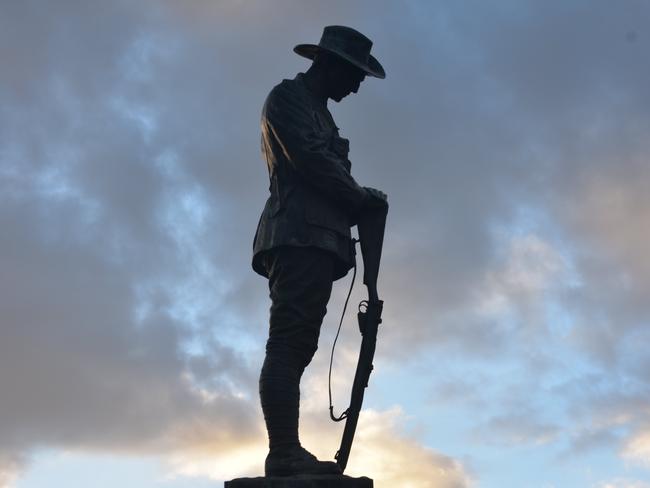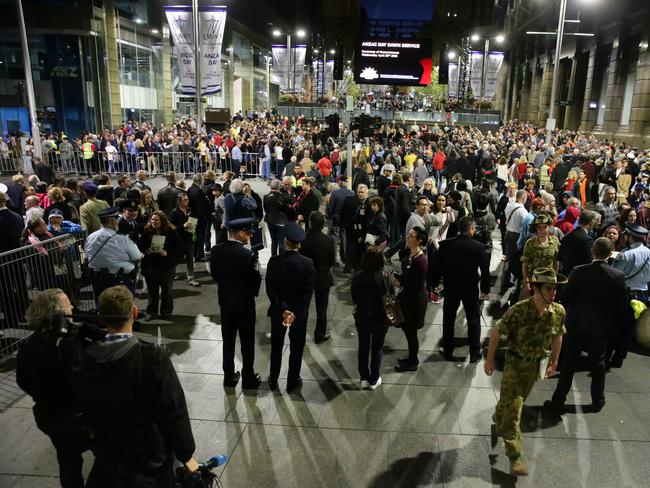Find your family’s untold Anzac story in the National Archives
The National Archives are granting access to more than 39 million records that could hold the heroic details of the ancestors you never knew.
Hibernation
Don't miss out on the headlines from Hibernation. Followed categories will be added to My News.
Bringing a family backstory to life is emerging as a popular activity during life in lockdown.
And discovering his roots has become a passion for young dad Tom Griffin who sees Anzac commemorations as a perfect opportunity to dig deep and appreciate amazing ancestors.
The tradition of serving in Australia’s armed forces is something that runs in the Griffin
family veins.
So he took it upon himself to track down a grandfather who served the country but he never got to meet.
Mr Griffin hopes his research will leave his six-month-old Isla with the “same knowledge”
about the family and “respect” for their sacrifice to the country.

“I want to teach her the skills to take history into her own hands and to understand how it
relates to her personally,” he said.
“There are so many fantastic resources to chart your own course through history and the
events that shaped the world we live in.”
“My grandpa Harry had always been a strong presence in our family history and mythology,”
Mr Griffin said.
“It felt important to me that we understand where he had been, what he had seen and what
he had done.”
With both parents having served in the army and quickly rising through the ranks, Mr Griffin
grew up moving around during their postings including to Townsville and England.
His mum Cathy became the first female commandant of Victoria Barracks, while his dad Michael recently retired as a Brigadier after a long and distinguished career including active service in Somalia and Iraq.

“I have a huge amount of respect and admiration for the men and women of the armed
services, as well as for their families,” Mr Griffin said.
“It is not an easy career and nowhere near what most people would consider normal in terms
of the sacrifices required.”
He had no diary records and barely any photos of his grandfather to work with.
But his curiosity would eventually lead him to the National Archive, where he found records
including a list of the medals his grandfather was awarded, what units he was in, his
promotions and extensive injuries.
”I’m using that Service and Casualty Form to map where he went and understand what
actually took place when he was there to see what he would have been involved in,” he said.
“The records tell you a little bit of the story, but not a lot about what the soldiers were actually doing.

“He was present for some pretty heavy fighting across the Middle East, Europe, Africa and
through the Pacific.”
Ann Lennie never knew her great grandfather but when she discovered he had
fought not only in World War One but also the Boer War it was a “revelation”.
Researching her descendants has brought life to the many old family photos she has
inherited and now she is passing on the many tales of discovery to her grandson
Cooper.
“He’s like any nine year-old – he’s into games … and a lot are war games so it
relates in a way,” Mrs Lennie said.
Cooper particularly likes Call of Duty, even though he’s only allowed to play a
modified version. But he is under no illusion that what his relatives went through was
the same as a computer game.
“My Grandma’s grandpa died in the war and my Grandpa’s Grandpa was a POW. So
he was a soldier but he got captured,” Cooper said.
TOP TIPS ON RESEARCHING FAMILY HISTORY
■ Check out the National Archives, it is a treasure trove.
■ Use a notebook to jot down names and write about each person as you
uncover facts about them
■ Make files of each individual family so you can add links from research sites
■ Bookmark useful sites on your computer including Ancestry, Births, deaths and marriages, Australian War Memorial, National Archives and Australian Battlefields.
■ Don’t be disappointed if there isn’t a digital copy of your ancestor’s record. Not everything is digitised – far from it – but you can ask and they will help you out.
■ Until 26 April, Ancestry is providing free access to more than 39
million Australia and New Zealand records, including military collection, to give people the chance to discover more about the lives of their own ancestors who served in WWI and WWII
Originally published as Find your family’s untold Anzac story in the National Archives
